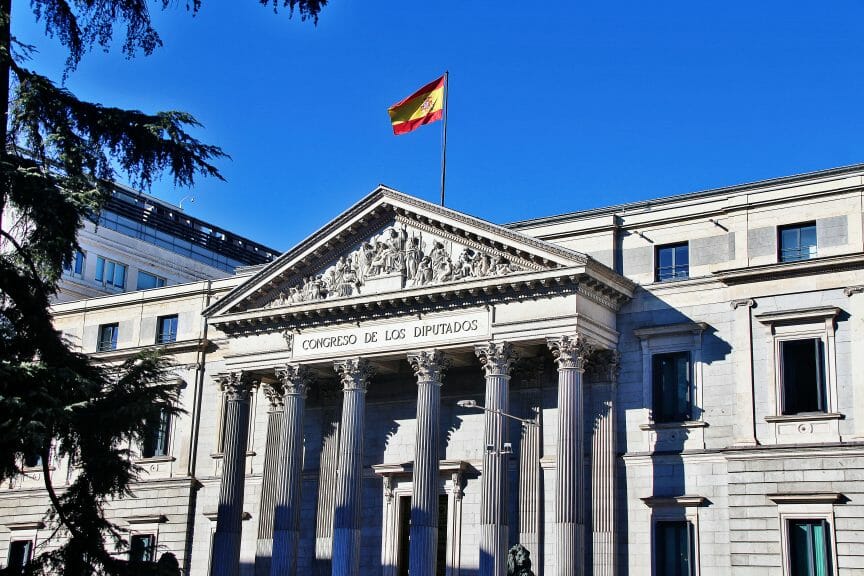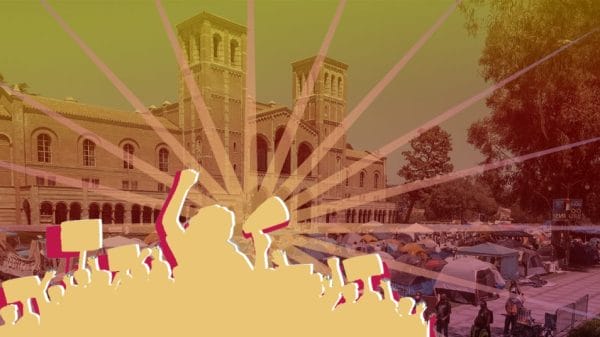After an inconclusive parliamentary election last month, Prime Minister Pedro Sánchez’s Spanish Socialist Workers’ Party (PSOE) was able to secure control in government with the help of regional independence parties.
PSOE politician, Francina Armengol, became the new president of the Congress of Deputies in Parliament after receiving 178 votes.
Both PSOE and the right-wing People’s Party (PP) needed an absolute majority, 176 seats, in parliament. When both the PSOE and the PP were short, Armengol received the winning seven from the pro-Catalan independence party, Together with Catalonia (Junts).
The PSOE was likely to gain the essential support of the regional independence parties because they’ve worked with them before. Since the PP also works with nationalist parties, like Vox, working with the independence regional parties might contradict their goals.
Sánchez even previously addressed regional parties by planning to include Spain’s many languages — Catalan, Basque and Galician along with Castilian Spanish — in the European Union. But Junts needed more in exchange for their votes.
Junts’ leader, Carles Puigdemont, argued that for their support, the government should issue an amnesty for those involved in a Catalan independence bid in 2017.
The bid was a serious offense. Spain’s Supreme Court sentenced nine Catalan politicians and activists involved to jail for up to 13 years.
Puigdemont was among the leaders who fled Spain to avoid prosecution for treason during the illegal referendum.
This week, however, his support was critical.
Puigdemont tweeted in Catalan his strong opinion on Spanish politics prior to the vote.
“We have no confidence in the Spanish political parties, all caution is little and the promises neither warm nor cool us,” he said.
In exchange for a socialist candidate as president of Congress, PSOE agreed to some of Junts’ demands. The PSOE will work to promote co-official languages in Congress, further investigate the Pegasus spyware case and attempt to remedy the illegal Catalan referendum situation.
The role of independence parties strengthens as they’re important in deciding between both sides of the political spectrum in Spain.
Reliance on Independence Parties
Armengol, as president of Congress, is in the third most important position in Spain, under the Prime Minister and the king. With the PSOE having power in significant positions in parliament, it will be more difficult for right-wing parties.
With the help of Catalan and Basque nationalists, PSOE will remain reliant on independent parties.
Critics of the left use PSOE’s dependency against them, especially since the EH Bildu party has ties to the Basque Homeland and Liberty terrorist group, Euskadi Ta Askatasuna (ETA).
Forty-four of EH Bildu’s candidates for regional elections were found guilty of crimes related to treason and terrorism. Seven of the candidates were convicted of murder.
Victims of the ETA see EH Bildu as the political extension of ETA, which dissolved in 2018.
EH Bildu isn’t the only party with problematic roots, however. Critics of the right emphasize the PP’s history and controversial connections with former Spanish dictator Francisco Franco.
PP was originally known as the People’s Alliance, founded by a supporter of Franco in the mid to late 1900s.
Both political sides use the other’s history and connections against them. Ironically, these connections are what help secure civilian votes.
What’s next for Spain and Europe?
After Parliament convened, political parties showed their support for either PSOE or the PP. Sánchez’s deal with Junts helped the PSOE lead and could’ve provided enough confidence to form a minority coalition government.
However, the exchange was for Armengol’s role as congressional president, not Sánchez’s role in office.
This election emphasizes the importance of regional parties in the future of Spanish politics. It will be difficult for Sánchez to protect his political power without making promises to other parties in exchange for support.
If the right is unwilling, they may fall into the background.
Throughout Europe, the right continues to create waves in elections and government. Right-wing parties are the ruling parties in Switzerland, Italy, Hungary and Poland.
If it wasn’t for the unique significance of independence parties and the PSOE’s ability to work with them, Spain might’ve easily followed Europe with the PP and Vox in power.














